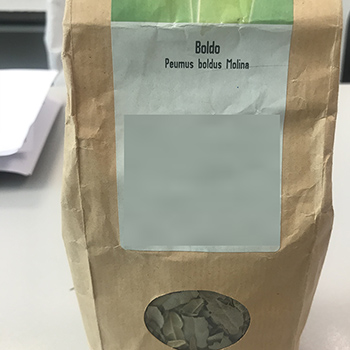Keywords
Peumus boldus, herbal medicines, hepatotoxicity
Abstract
An 87-year-old man was admitted with a 2-week history of asthenia, anorexia and jaundice. Blood tests showed increased serum liver enzymes. The aetiological study was inconclusive. The patient had a favourable clinical evolution during hospitalization with supportive care. His wife revealed that the patient had repeatedly consumed infusions of Peumus boldus (commonly known as boldo) leaves during the previous month. After common causes of hepatobiliary pathology were excluded, boldo-induced hepatotoxicity was considered probable. Cessation of its consumption led to complete clinical and laboratory recovery within a week.
References











